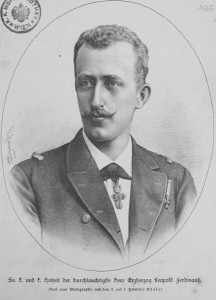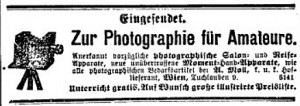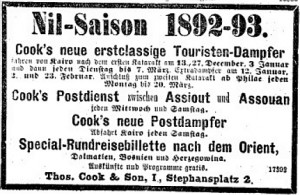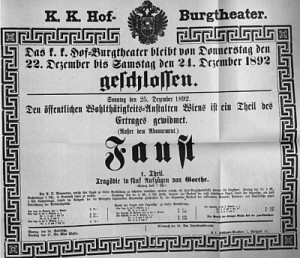On the open sea. Saltwater around the ship’s planks and above it the canopy: That is all that is offered to the mariner’s view. And still it is a painting of simple majesty, not a monotonous image which brings forth air and water to us. Whoever is blessed with a sentiment for nature’s beauty will retain very enjoyable impressions of these changing images created by the elements. Off and on we are captivated by the range of colors and forms, then by their movements and again by the majestic calm of the sea and time and again, this grand work of god’s creation continues to excite our thoughts and feelings: now by the spray of the whirl in which the iron ship is spinning up and down like a shuttlecock. then by the foam crowns of the waves at the fore — a shroud of mist may obscure the horizon, the fiery sun may paint the air and sea in a rose or purple light or the soft moonshine may bathe the tireless waves in a silver light. Hour upon hour, I delight to stand on the bridge glancing first at the swelling waves, then to the sky. To whom the sky is more than airless space, who loves and understands the sea, will be pleased by the power and the might of the light, its glittering smoothness, as well as the roaring sea. When the sun has set, we look at the constellations and remember that our dear ones at home are looking at the same constellations and that they feel what is moving us.
I observe the beings that become visible from the ship like visiting ambassadors of our element, the Earth, a dolphin ambling around our vessel and boldly jumping out of the water, a soaring seagull, fast as an arrow; a small bird twittering on the yard, recovering for the long voyage over the shear endless sea. Most charming was a white wagtail that followed us on part of our journey and sang its happy song unbashfully on the rails of the command bridge and later picked up crumbs of bread fallen down from the seamen’s table in the battery.
The good seamen enjoyed a short midday rest to which they were fully entitled. From early morning to the evening, they are without interruption at work, not a moment of idleness or boredom. After reveille („Ausspurren“) starts the cleaning of the whole ship, and bucket upon bucket of water is versed upon the beautiful ship in order that she may complete her daily work in splendor. Exercises of all kind in the battery and on deck, from time to time a fire alarm or to test the martial impulse in earnest a battle stations alarm and are continued after a frugal meal and are filled with hours of countless mental composition in the ship’s school rooms. In the evening, after the toils of the day, the crew is meeting on deck, smoking cigarettes and sing their native songs and ballads, in which the Slavs and Dalmatians usually excel all others in their choirs about the old heroic tales of Marko Kraljevic, Peter Klepec and other songs. Finally, the retreat call („Abpurren“) is sounded and the hammocks are entered. Quietness reigns, apart from the pounding of the machines and the call of the outlook every half hour, „All right“ and „Lanterns clear“.
I passed the whole day on deck. The temperature is fully southern now. In front of my cabin, the thermometer shows 40° in the sun, the sea is 22° Celsius. The wind has changed and blows hot and dry from the south. Now and then a large mountain is visible in the far away mist on the horizon, otherwise just a few passing single steamboats. In the morning, we passed the lighthouse of Daedalus, which emerges out of the sea as it is located on a submerged coral reef — not even the tiniest morsel of land around it. Three Maltese men pass their lonely life here as lighthouse guards. One after the other is given a short vacation to escape to the mainland every six months.
Links
- Location: Daedalus Reef, Red Sea
- ANNO – on 23.12.1892 in Austria’s newspapers. The Neue Arbeiter Zeitung reminds its comrade-readers that the new quarter will be starting soon and that subscribers better pay up on time in order not to miss an issue. The subscription is to be paid in advance. Content-wise, it informs that cholera is threatening from Hamburg. In Austria, protective measures which should have been undertaken to contain the disease have not been executed to the inactivity of the planning committees. In other news, the consumption of horse meat has increased in comparison to the year before. Given that only weak and old horses are slaughtered, this is not seen as an improvement of the workers‘ lot.



